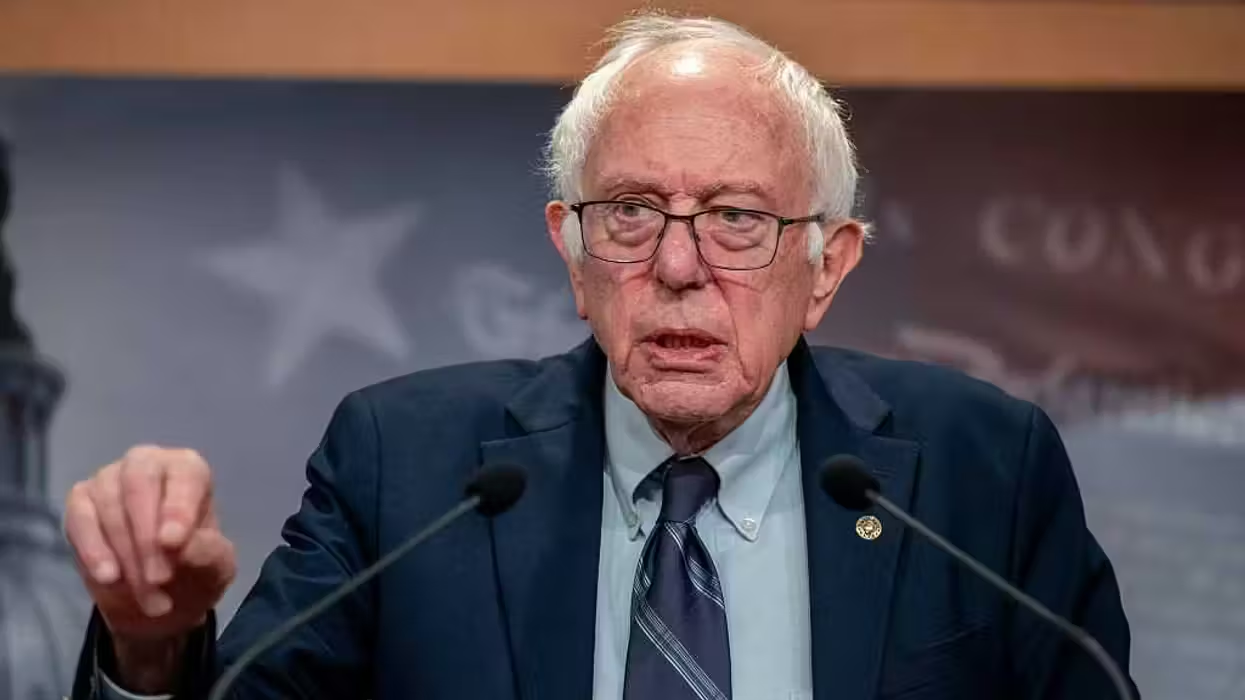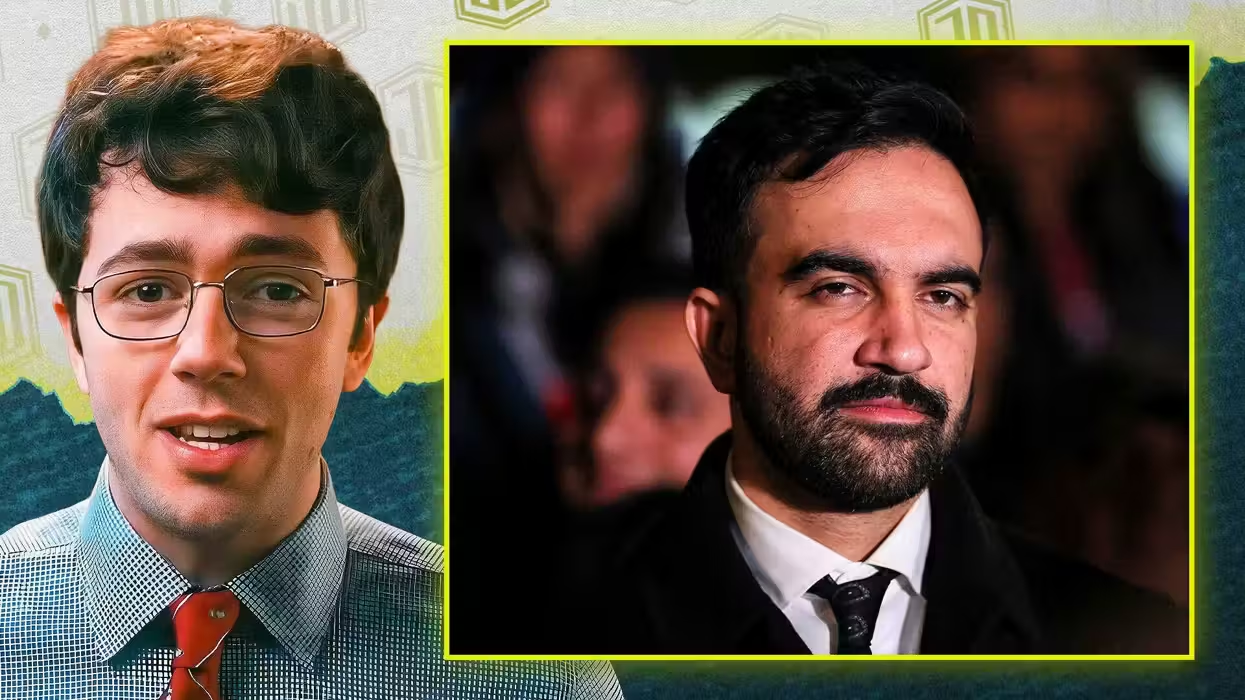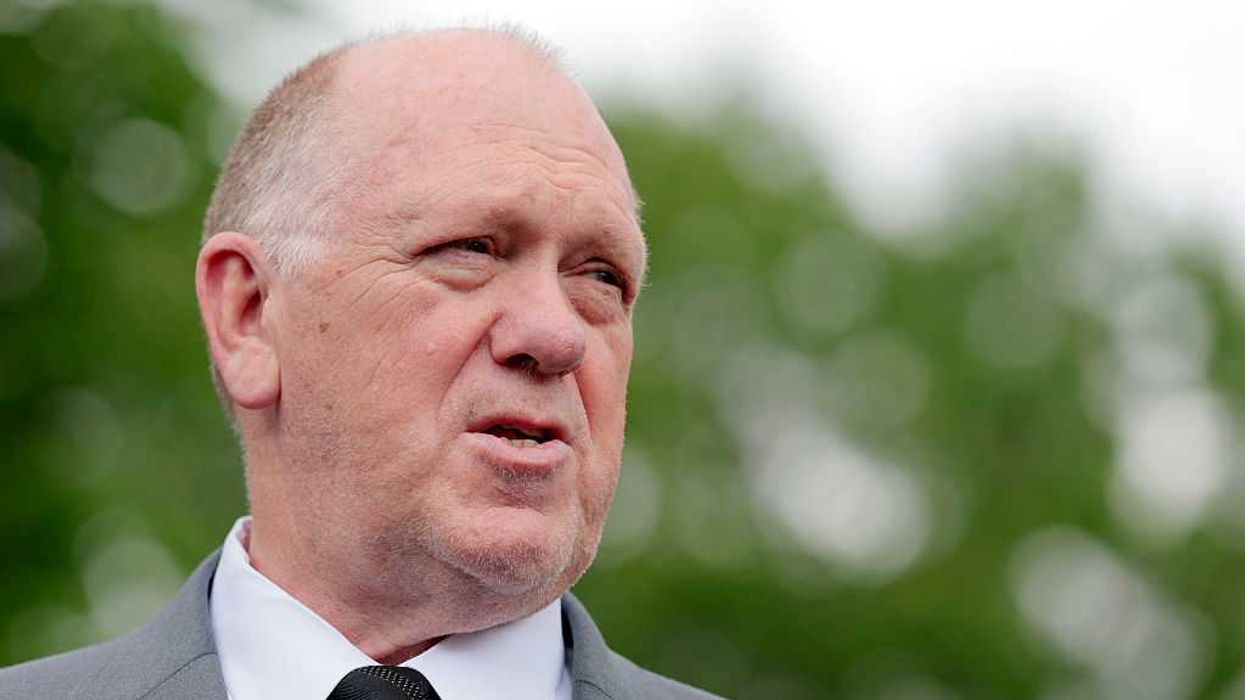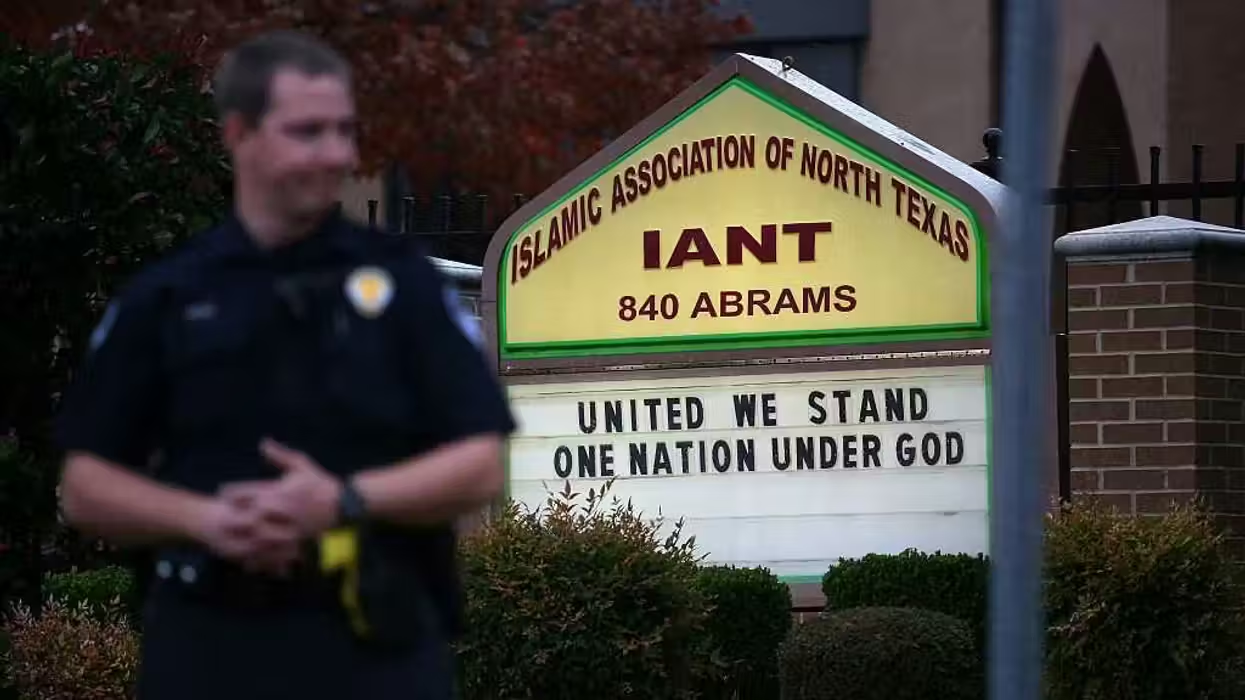Published Nov. 8 at 8:45 am; Updated at 10:55 am.
The Obama administration has been secretly softening sanctions on Iran since the election of its new president and ahead of a new round of nuke talks with the country that's been openly hostile to Israel and the U.S. in the past, an exclusive report from the Daily Beast says. That report comes as Israeli Israeli Prime Minister Benjamin Netanyahu said Friday that he "utterly rejects" the emerging nuclear deal between western powers and Iran, calling it a "bad deal" and promising that Israel will do everything it needs to do to defend itself.
 U.S. Secretary of State John Kerry speaks on a mobilephone after meeting with Israeli Prime Minister Benjamin Netanyahu in Tel Aviv, Israel, Friday, Nov. 8, 2013. (AP Photo/Jason Reed, Pool)
U.S. Secretary of State John Kerry speaks on a mobilephone after meeting with Israeli Prime Minister Benjamin Netanyahu in Tel Aviv, Israel, Friday, Nov. 8, 2013. (AP Photo/Jason Reed, Pool)
That deal includes the key condition for Iran that there must be relief from sanctions, but the Daily Beast's Eli Lake and Josh Rogin write that "began quietly and modestly five months ago."
Lake and Rogin continue:
"A review of Treasury Department notices reveals that the U.S. government has all but stopped the financial blacklisting of entities and people that help Iran evade international sanctions since the election of its president, Hassan Rouhani, in June."
[...]
“For five months, since Rouhani’s election, the United States has offered Iran two major forms of sanctions relief,” Dubowitz said. “First there’s been a significant slowdown in the pace of designations while the Iranians are proliferating the number of front companies and cutouts to bust sanctions.”
The second kind of relief Dubowitz said the White House had offered Iran was through its opposition to new Iran sanctions legislation supported by both parties in Congress.
Not surprisingly, Netanyahu has been voicing displeasure over the deal, especially over the disappearing sanctions.
"I understand the Iranians are walking around very satisfied in Geneva as well they should because they got everything and paid nothing," he told reporters.
"They wanted relief of sanctions after years of grueling sanctions, they got that. They paid nothing because they are not reducing in any way their nuclear enrichment capability. So Iran got the deal of the century and the international community got a bad deal," Netanyahu said.
Israel believes Iran is trying to develop a nuclear weapon, and says international pressure should be stepped up, not eased, in order to force Iran to dismantle its nuclear program. Netanyahu has repeatedly threatened to attack Iran, unilaterally if necessary, if he concludes that diplomatic pressure on Iran has failed.
He spoke before meeting with U.S. Secretary of State John Kerry. Kerry returned to Tel Aviv from Jordan to speak with Netanyahu before flying to Switzerland to participate in nuclear talks with Iran.
 U.S. Secretary of State John Kerry walks to his plane after meeting with Israeli Prime Minister Benjamin Netanyahu in Tel Aviv, Israel, Friday, Nov. 8, 2013. Netanyahu, before meeting with Kerry, said Friday that he "utterly rejects" the emerging nuclear deal between western powers and Iran, calling it a "bad deal" and promising that Israel will do everything it needs to do to defend itself. (Credit: AP)
U.S. Secretary of State John Kerry walks to his plane after meeting with Israeli Prime Minister Benjamin Netanyahu in Tel Aviv, Israel, Friday, Nov. 8, 2013. Netanyahu, before meeting with Kerry, said Friday that he "utterly rejects" the emerging nuclear deal between western powers and Iran, calling it a "bad deal" and promising that Israel will do everything it needs to do to defend itself. (Credit: AP)
Kerry's decision to fly to Geneva comes after signs that global powers and Iran were close to a deal that would cap some of Iran's suspected nuclear program in exchange for limited relief from economic sanctions.
"This is a very bad deal and Israel utterly rejects it. Israel is not obliged by this agreement and Israel will do everything it needs to do to defend itself and defend the security of its people," he said.
A State Department official said only that Kerry and Netanyahu met one on one for two hours and 15 minutes.
State Department spokeswoman Jen Psaki confirmed Kerry would go Geneva to meet Friday with the European Union's top diplomat, Catherine Ashton, and Iran's foreign minister, Mohammad Javad Zarif.
Israel considers a nuclear-armed Iran to be an existential threat, citing hostile Iranian rhetoric toward the Jewish state, Iran's missile capabilities and its support for violent Middle Eastern militant groups.
Netanyahu says pressure must be maintained until Iran halts all enrichment of uranium, a key step in producing a nuclear weapon; removes its stockpile of enriched uranium from the country; closes suspicious enrichment facilities and shutters a facility that could produce plutonium, another potential gateway to nuclear arms.
Despite Netanyahu's warnings, there are growing signs that any international deal with Iran will fall short of his demands.
The Iranian nuclear program will likely to dominate Friday's meeting, overshadowing Kerry's efforts to revive peace talks between Israel and the Palestinians.
A senior state department official said that Kerry has been open to the possibility of traveling to Geneva for the talks "if it would help narrow differences."
The official said Ashton asked Kerry to attend the latest round of discussions. The official called the negotiations "a complex process" and said Kerry was "committed to doing anything he can" to help.
The Associated Press contributed to this report.

 U.S. Secretary of State John Kerry speaks on a mobilephone after meeting with Israeli Prime Minister Benjamin Netanyahu in Tel Aviv, Israel, Friday, Nov. 8, 2013. (AP Photo/Jason Reed, Pool)
U.S. Secretary of State John Kerry speaks on a mobilephone after meeting with Israeli Prime Minister Benjamin Netanyahu in Tel Aviv, Israel, Friday, Nov. 8, 2013. (AP Photo/Jason Reed, Pool)






